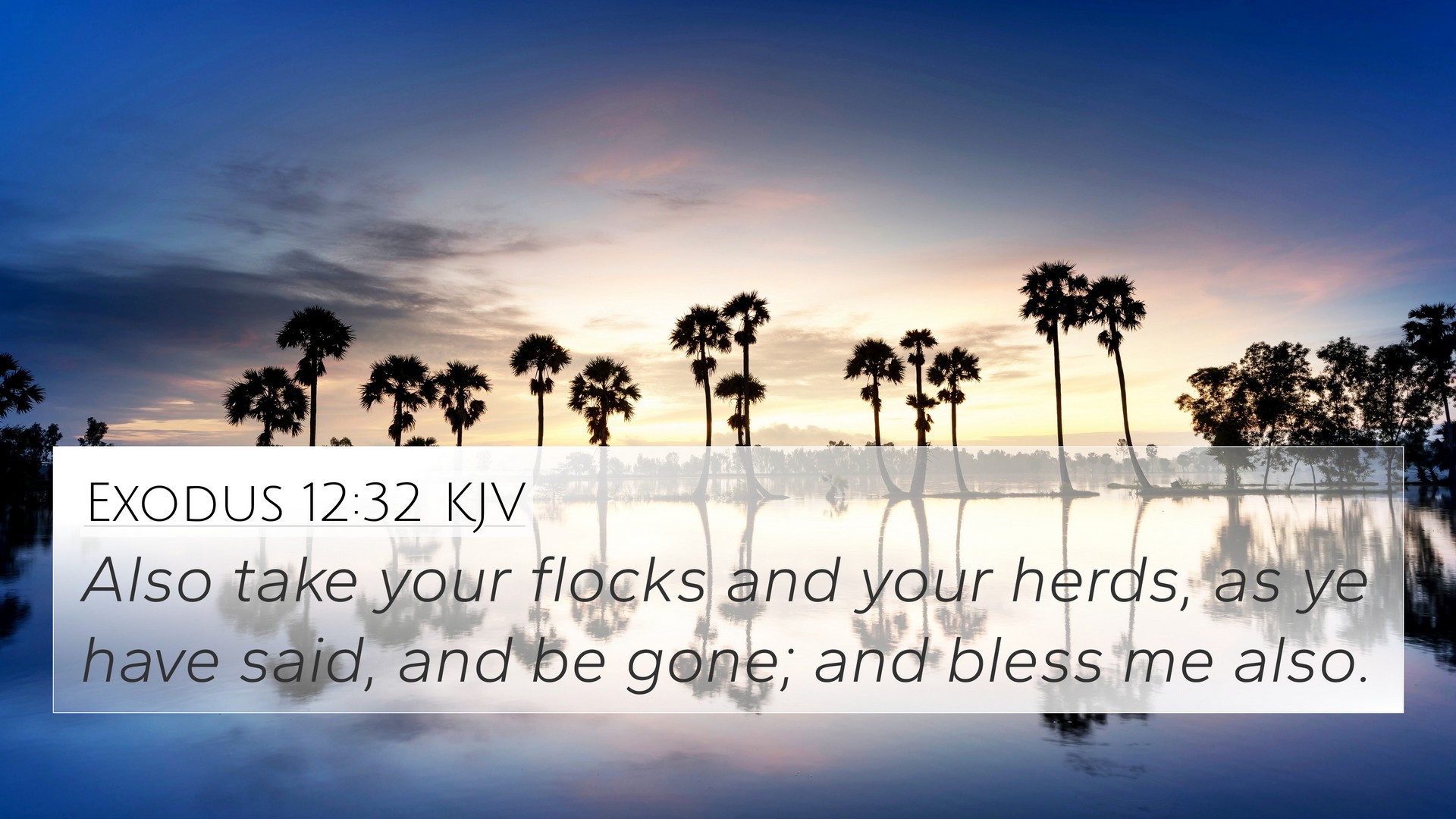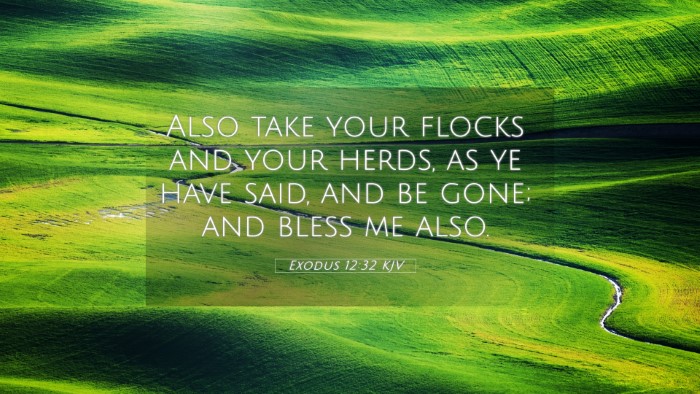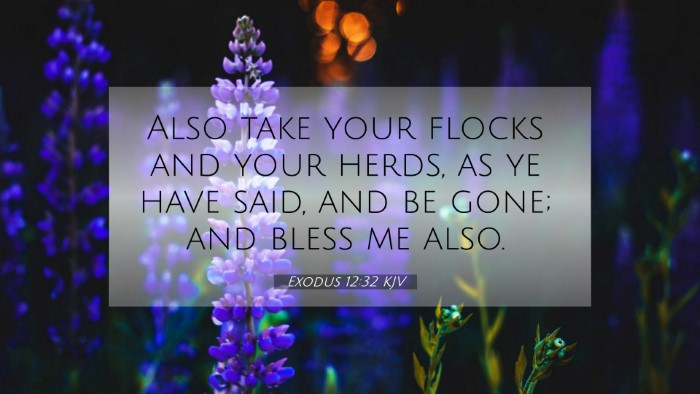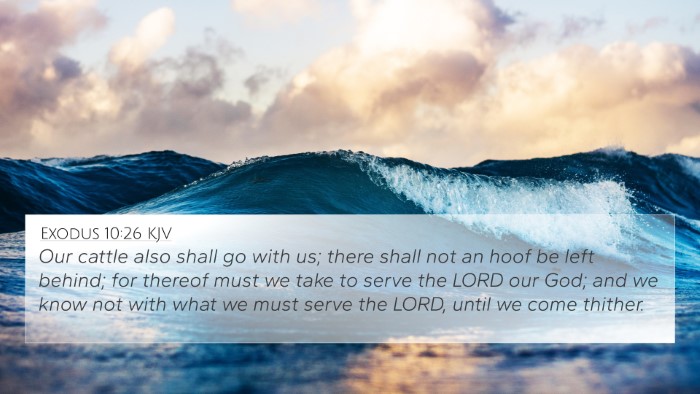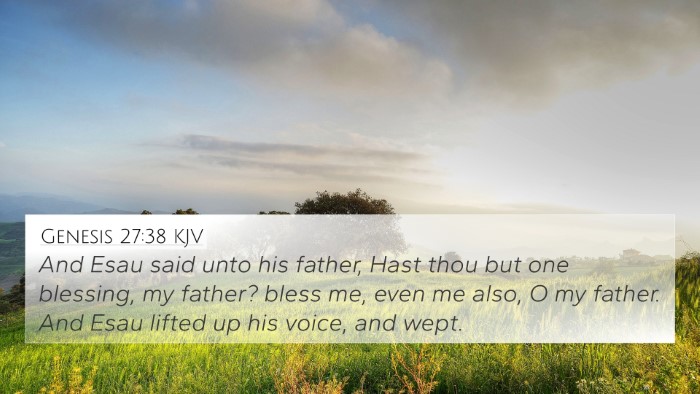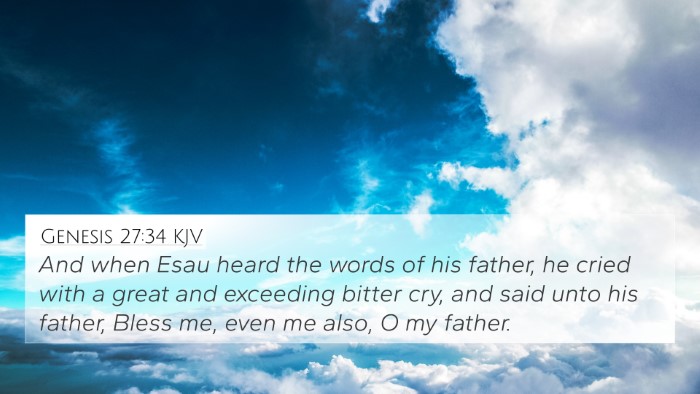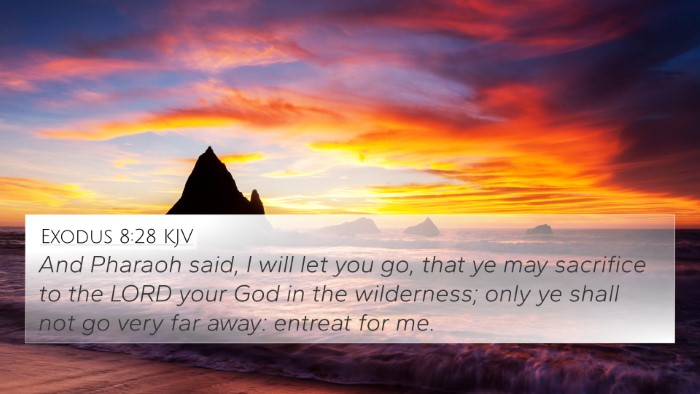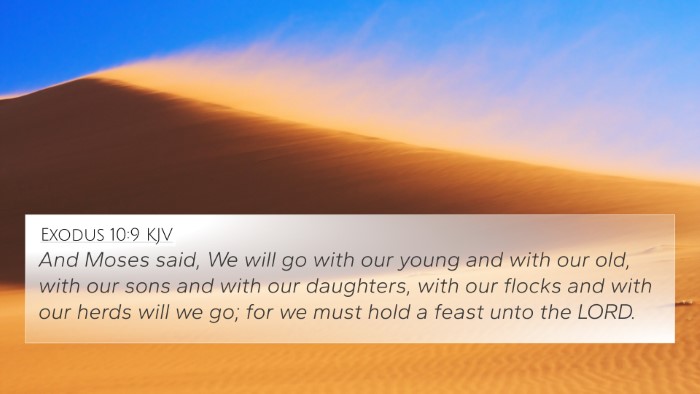Understanding Exodus 12:32
Bible Verse: Exodus 12:32: "Take your flocks and your herds, as you have said, and be gone; and bless me also."
Summary of Exodus 12:32
Exodus 12:32 captures a significant moment during the Exodus, where Pharaoh finally admits defeat and allows the Israelites to leave Egypt. This verse highlights the urgency of their departure and emphasizes Pharaoh's complex relationship with Moses and the plagues that led to this moment.
Commentary Insights
-
Matthew Henry:
Henry reflects on Pharaoh's reluctant recognition of God's power. The verse signifies Pharaoh’s acknowledgment that the God of the Israelites is indeed mighty, indicating a final plea to ensure his own well-being by asking Moses to bless him.
-
Albert Barnes:
Barnes examines the implications of this plea, noting that Pharaoh’s request to be blessed reveals his fear of impending judgment. This request is significant as it signifies a shift in power dynamics, showcasing how God’s will supersedes Pharaoh's authority.
-
Adam Clarke:
Clarke offers insights into the emotional turmoil of Pharaoh, observing that despite his hardened heart, he seeks mercy from Moses. This verse serves as a climax to the struggles between Moses and Pharaoh, providing a theological reflection on repentance.
Thematic Connections in Scripture
This verse serves as a pivotal connection point that can be cross-referenced with various other scriptures, illustrating inter-Biblical dialogue and thematic relations:
- Genesis 47:5-6: Pharaoh recognizes Joseph's wisdom and grants his family land, paralleling Pharaoh's acknowledgment of the need for blessings.
- Exodus 10:29: Moses speaks to Pharaoh about seeing his face no more, enhancing the gravity of this final farewell.
- Exodus 12:36: The Lord grants favor to the Israelites, compelling the Egyptians to give them silver, gold, and clothing as they prepare to leave.
- Psalm 105:38: This psalm recounts how the Egyptians were glad to see the Israelites go, highlighting the desperation on both sides.
- Romans 9:17: Paul references Pharaoh’s hardening as part of God’s purpose, drawing connections about God’s sovereignty over human resistance.
- Hebrews 11:28: This verse speaks of Moses keeping the Passover, linking to the context of liberation and God’s protective measures for Israel.
- John 20:29: The distinction between belief without sight connects with Pharaoh’s eventual acknowledgment of God’s power and how faith operates.
Bible Verse Cross-References
The connections between Bible verses enhance our understanding of God’s overarching narrative. Below are key references that illustrate thematic relevancy:
- Exodus 3:19-20: The Lord foretells Pharaoh’s stubbornness but promises deliverance for Israel.
- Exodus 14:5: Pharaoh’s regret after releasing the Israelites exemplifies the tension between authority and divine command.
- Proverbs 21:1: The king’s heart is described as a stream in God’s hand, reinforcing the theme of divine control over earthly rulers.
Tools for Bible Cross-Referencing
For deeper exploration, employing various tools for Bible cross-referencing can greatly enhance one's study:
- Bible Concordance: A helpful resource for finding specific verses and themes across the Bible.
- Bible Cross-Reference Guide: Useful for linking passages that share similar themes or teachings.
- Cross-Reference Bible Study: A method of exploring the interconnectedness of scriptures systematically.
- Comprehensive Bible Cross-Reference Materials: Extensive resources that provide deeper insights into the narrative Wholes of scriptures.
Conclusion
Exodus 12:32 serves as a critical juncture in the Exodus narrative, illuminating the struggle between divine authority and human governance. The cooperative examination of various commentaries and cross-references enables a richer understanding of this verse in its scriptural context. The insights gained reveal the transformative journey of the Israelites and the theological implications of their liberation.
